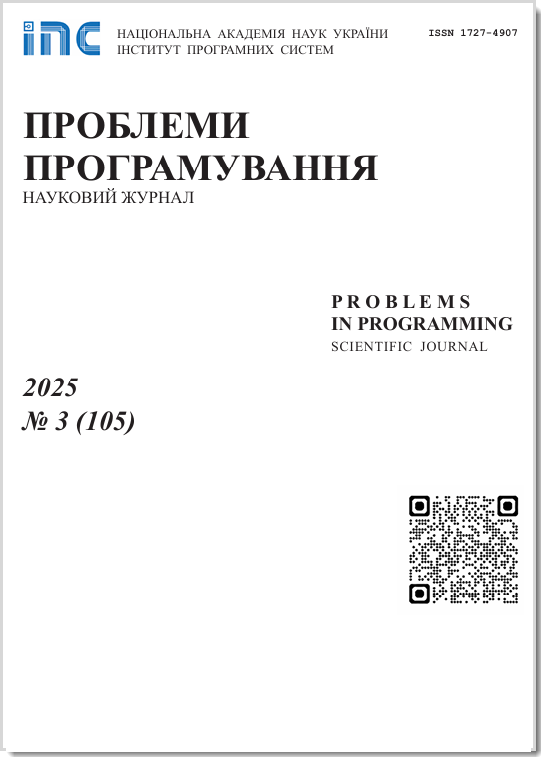Evolutionary games in TCP networks with speed restriction policies
Abstract
new versions of the protocol allows the user to increase the data rate by selecting the appropriate implementation of TCP. It is difficult to predict consequences of computer network users’ interaction in situations when many users try to achieve higher data rate by applying different TCP implementation. The actual task is to develop a theoretical and program tools to model such competitive dynamic interactions. This is the goal of my scientific-research work.
Game theory, which is the theory of mathematical models of optimal decision making in situations of conflicts of interest, is the best suited to solve a particular problem because it allows you to find a solution in terms of non-cooperative interaction, which usually happens between the networks TCP-connections.
This paper examines the possibility of coexistence of different implementations of protocols that users can change to improve their own capacity. It also examines games between protocols in cases when users’ packets management policies are applied.
Problems in programming 2016; 4: 33-47
Keywords
Full Text:
PDF (Русский)References
Afanasyev A., Tilley N., Reiher P., Kleinrock L. Host-to-Host Congestion Control for TCP // IEEE Communications Surveys & Tutorials. - 2012. - 12(3). - P. 304-342.
https://doi.org/10.1109/SURV.2010.042710.00114
Garg R., Kamra A., Khurana V. A gametheoretic approach towards congestion control in communication networks // Computer Communications Review. - 2002. - 32(3). - P. 47-61.
https://doi.org/10.1145/571697.571723
Alpcan, T., Bas¸ar, T. A utility-based congestion control scheme for Internet-style networks with delay // IEEE Transactions on Networking. - 2005. - 13(6). - P. 1261-1274.
https://doi.org/10.1109/TNET.2005.860099
Altman E., El-Azouzi R., Hayel Y., Tembine H. An evolutionary game approach for the design of congestion control protocols in wireless networks // Proceedings of 2008 6th International Symposium on Modeling and Optimization in Mobile. - 2008.
https://doi.org/10.1109/WIOPT.2008.4586129
Altman E., El-Azouzi R., Hayel Y., Tembine H. The evolution of transport protocols: an evolutionary game perspective // Computer Networks Journal. - 2009. - 53(10). - P. 1751-1759.
https://doi.org/10.1016/j.comnet.2008.12.023
Ignatenko O. and Synetskyi O. Evolutionary Game of N Competing AIMD Connections // Information and Communication Technologies in Education, Research, and Industrial Applications, Springer International Publishing. - 2014. - P. 325-342.
https://doi.org/10.1007/978-3-319-13206-8_16
Maynard Smith J. Game theory and the evolution of fighting. John Maynard Smith (Ed.), On Evolution, Edinburgh University Press. - 1972. - P. 8-28.
Ait-Hellal, O., Altman, E., Elouadghiri, D., Erramdani, M., Mikou, N. Performance of TCP/IP: the case of two Controlled Sources // ICCC'97. - 1997.
DOI: https://doi.org/10.15407/pp2016.04.033
Refbacks
- There are currently no refbacks.









